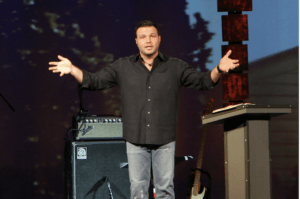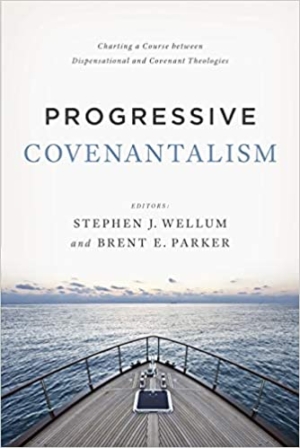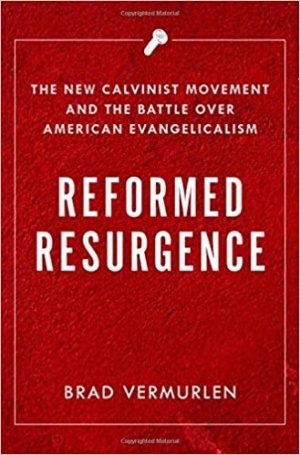The discussion of the differences between Baptist and Reformed theology is a sensitive but important question. Thus, I think I should explain why I am writing this series. In my experience, some Baptists, especially those who identify with the Particular Baptist tradition, . . . Continue reading →
Defining “Reformed”
There Is No Credo Baptist Heidelberg Catechism or Why Hercules Collins Was Not Reformed
For some years I have complained about Baptist squatters in the Reformed house. These are those Baptists who insist on re-defining the adjective Reformed. As it turns out, however, this habit of squatting is not new at all. Indeed, one of the . . . Continue reading →
The Canons Of Dort Were Not Intended To Be A Comprehensive Statement Of Reformed Theology, Piety, And Practice
Synod intended the Canons as a response to a specific challenge not as a summary of Reformed theology. Continue reading →
On Leaving The Mainline: Some Friendly Advice To The Alliance Of Reformed Churches
Kathryn Post, writing for the Religion News Service (HT: Christianity Today), writes, “On New Year’s Day, 43 congregations of the Reformed Church in America (RCA) split from the national denomination, one of the oldest Protestant bodies in the United States, in part over theological differences regarding same-sex marriage and the ordination of LGBT clergy.” This move, she says, “follows the RCA General Synod’s October decision to adopt measures for ‘grace-filled separation’ with departing churches and to appoint a team to develop a restructuring plan for those that remain.” These 43 congregations (so far) have formed The Alliance of Reformed Churches. Continue reading →
Was The Rise And Fall Of Mars Hill Podcast Series A Mistake?
This is the argument of Jason Estopinal. He appeals to Proverbs 10:19, 1 Thessalonians 4:11; Philippians 4:8, Proverbs 3:30, and Matthew 18 and concludes that Christians should not be fascinated by what one critic has called the “failure porn” of the Christianity Today podcast . . . Continue reading →
An Aberration Or Standard In Progressive Covenantalism? Issues About Covenant Conditions
Caneday’s main argument is to undermine the law-gospel distinction. In his words, “This chapter disavows the notion that all of Scripture consists of two isolatable messages: law, consisting of God’s demands, and gospel, composed of God’s gracious giving. Instead, it argues that the formulation of covenant stipulations remain the same while the content of stipulations changes.” (pg. 103; italics original). Continue reading →
Notes On Episode 3 Of “Who Killed Mars Hill?”
Last week I noted the new Christianity Today podcast on the rise and fall of Mars Hill church in Seattle. In episode 3 host Mike Cosper tells the story of the early days of Mars Hill. It is a familiar story of a . . . Continue reading →
An Intramural Baptist Debate That Illumines The Profound Differences Between Baptist And Reformed Theology, Piety, And Practice
An Illuminating Podcast From Christianity Today On The Rise And Fall Of Mars Hill
Christianity Today has released a new NPR-style podcast series hosted by Mike Cosper, “Who Killed Mars Hill?.” It is well done and deserves your attention. So far they have released a couple of trailers and two complete episodes. Cosper is sympathetically critical . . . Continue reading →
There Is No Such Thing As A “Five Point” Calvinist
There are, therefore, more than five points and — as far as the confessions and the Reformed dogmaticians from Calvin to Kuyper are concerned — there cannot be such a thing as a “five-point Calvinist” or “five-point Reformed Christian” who owns just . . . Continue reading →
In The Wake Of The SBC: Baptists Are Neither Reformed Nor Calvinist
The Southern Baptist Convention met and fought this week. Some who lost are talking about “leaving.” Continue reading
Was Clark Pinnock The Beginning Of The Young, Restless, and “Reformed” Movement?
The name Clark Pinnock (1937–2010) does not appear in Collin Hansen’s Young, Restless, and Reformed (2008) but perhaps it should have? Continue reading
On The Etymological Fallacy, Semantics, And Defining Reformed
Three Vital Questions For the PCA In 2021
There are three great questions to be faced by the PCA in 2021: Continue reading
The Reformed Rejected Both World-flight And Earthly Golden Ages
The Swiss Brethren, who signed the Schleitheim, confessed (in article 6) that a Christian may not serve as a magistrate and the magistrate may not enforce religious orthodoxy and (in article 7) that Christians may not swear oaths for any purpose.60 The . . . Continue reading →
Understanding The New Calvinists: Neither New Nor Calvinists
The New Calvinist movement is probably about 20 years old or so. Collin Hanson’s Young, Restless, and Reformed appeared in 2008, just before Recovering the Reformed Confession. Whether it is Reformed is a matter to be debated. In recent years, however, the movement has certainly shown itself to be restless. One prominent figure in the movement has publicly abandoned the Christian faith. Three prominent figures, James MacDonald, C. J. Mahaney, and Mark Driscoll, have been either been removed from their churches or resigned amidst scandals. One might think of them as elephants in the YRR/New Calvinist room. Continue reading →
In Defense Of Labels
Imagine going to a supermarket where none of the groceries was labeled and where none of the aisles was marked. For that matter, imagine trying to figure out which of the buildings in the strip mall is the grocery or telling one . . . Continue reading →
Christmas Confusion
Dear NAPARC Pastor,
If you think that distinguishing law from gospel is “Lutheran” Continue reading
On Being Reformed Now $19.99 Until December 31, 2020
On Being Reformed: Debates Over A Theological Identity is now $19.99 until December 31, 2020. Use the code: BEST20PAL to get the discount. For more information about this volume the introductory post. This volume is usually grossly over-priced but this is a . . . Continue reading →
On Being Reformed E-Book On Sale For $11.99 Until December 1, 2020
The publisher has the E-book edition of On Being Reformed marked down to $11.99 (USA; UK 11.99 stlg). Use the code CYBER20PAL. The promotion ends December 1, 2020. Resources How To Subscribe To Heidelmedia Office Hours: On Being Reformed . . . Continue reading →










